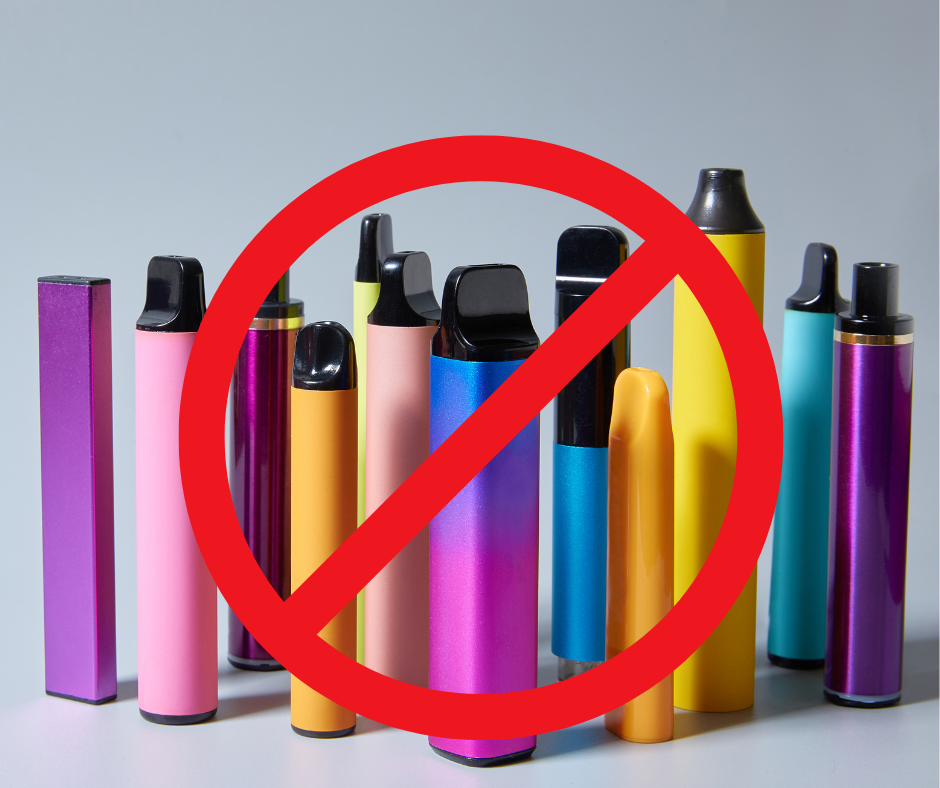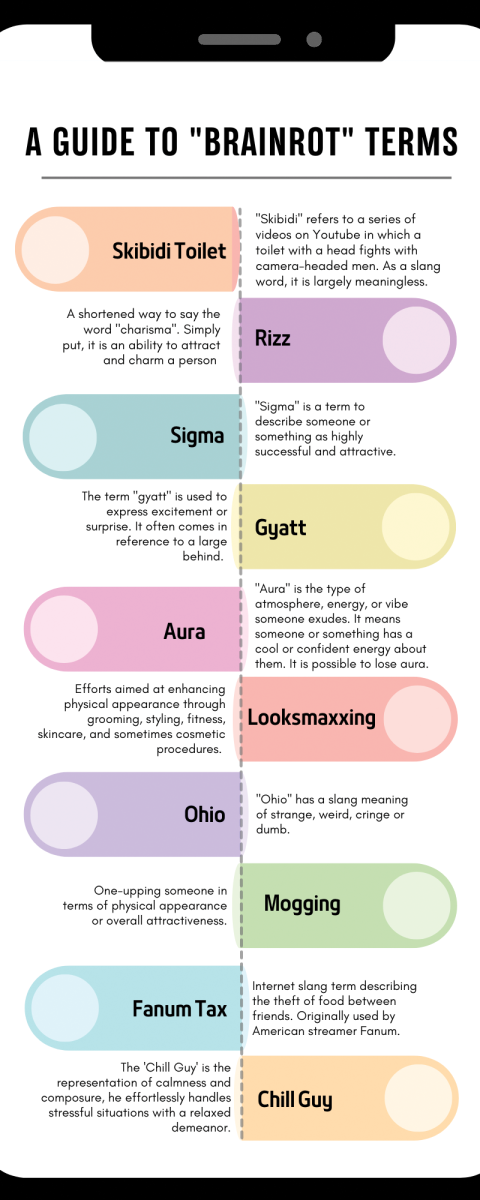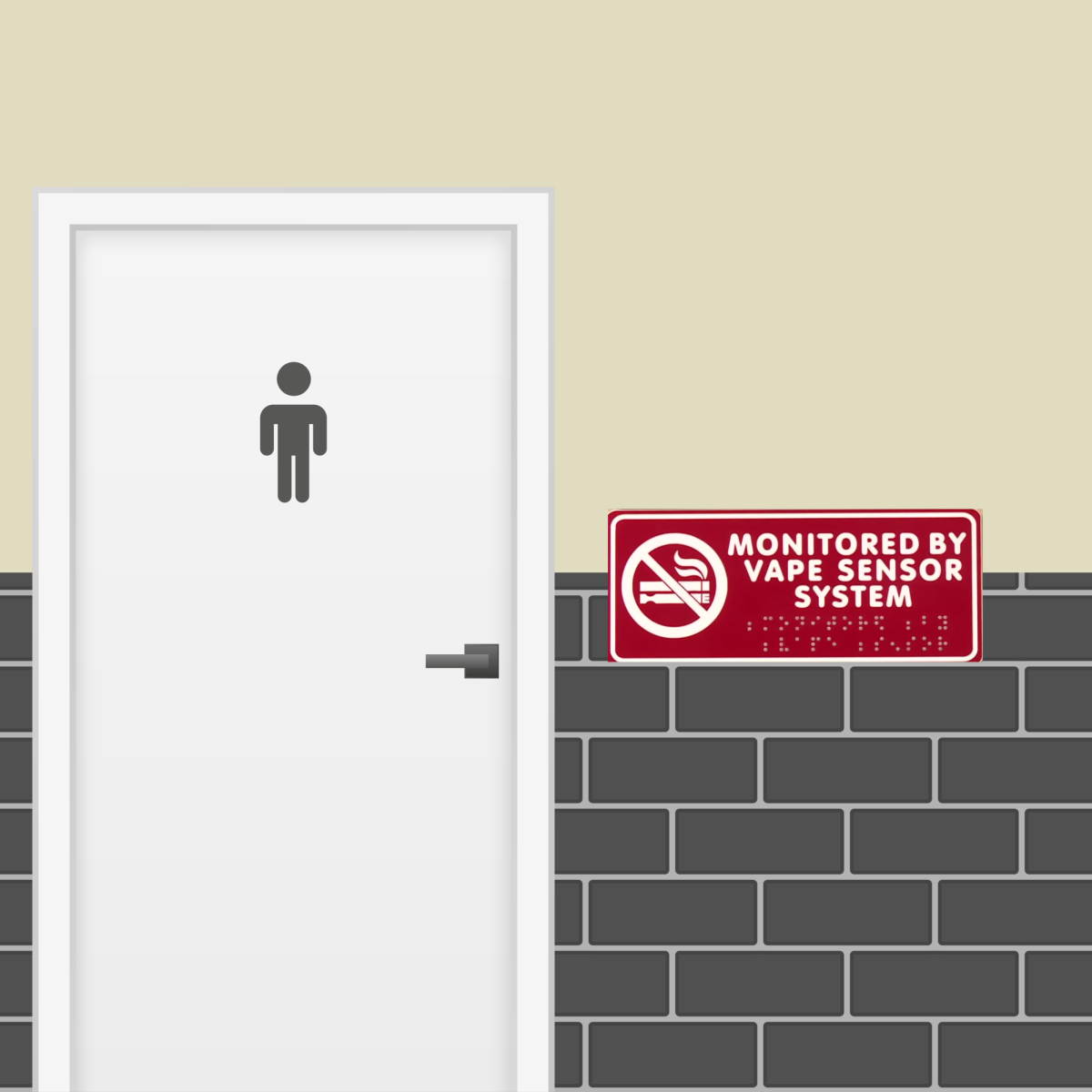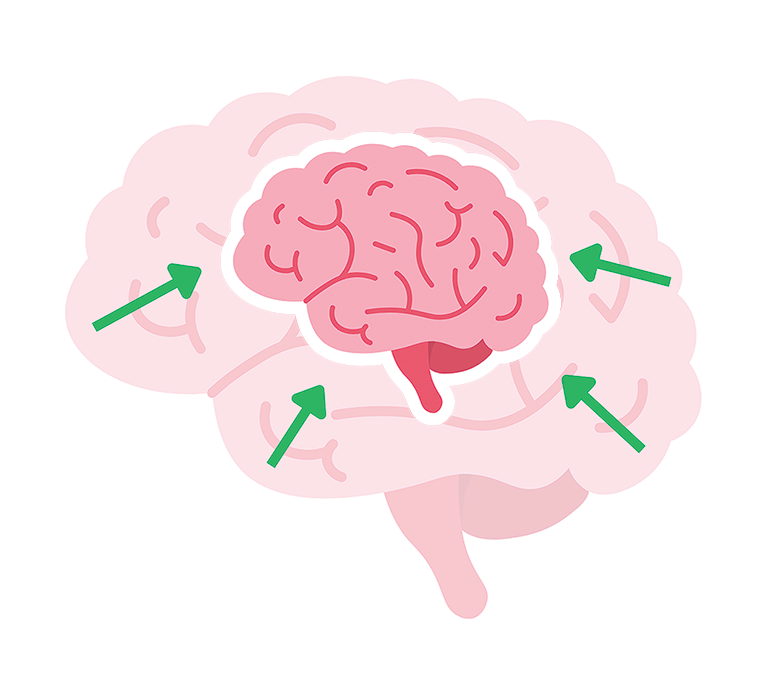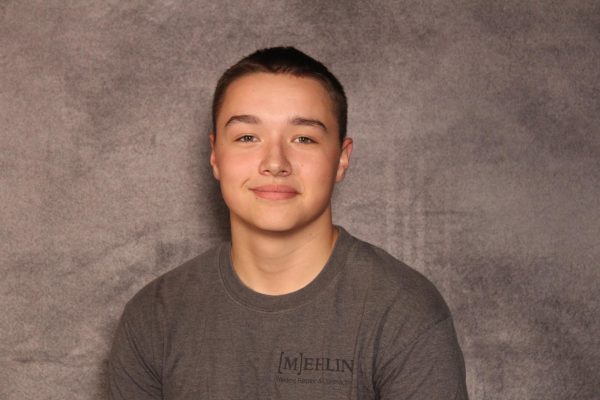There are a million reasons that people – especially teenagers – start smoking or vaping: Social and peer pressure, academic stress, or personal turmoil afflicts them. Perhaps they’re stressed with finals, tests, a breakup, a new relationship, a death, or a birth.
As unfortunate as it is, vaping is a pandemic that has spread and firmly rooted itself in our country, community and school. Many seem to think the answer is brute force. Our school’s administrators have begun fighting fire with fire as suspensions, detentions, random searches, and detection systems fill our hallways, classrooms, and bathrooms.
On the surface, this appears to be a good idea, weeding out the vapes that pass through the front door everyday, but this issue is far from surface level. Vaping is an addiction that takes a hold of the person and makes it nearly impossible to quit without causing untold discomfort, nausea, sleeplessness, headaches, shaking and cravings.
Unfortunately, the new brute force system fails to recognize the human aspect of those who chose to begin vaping and are now locked in its grip. It is paramount to keep in mind that these are just kids, each with individual talents, dreams, hopes and aspirations. The victims of this pandemic are young minds that are on the receiving end of a ruthless chemical designed to be as addictive as possible.
The new vape detection system, which was implemented in Lincoln Southeast’s school bathrooms in early December, is one example of the “brute force” approach that LPS has seemingly adopted. When faced with a crisis of teenagers in the thralls of addiction, LPS decided to implement a system in which a faulty detection system monitors you while you use the restroom.
Many of the sentiments regarding the inefficiency and incorrectness of the new detection system that I’ve been expressing are shared by other members of the LSE community.
“I also see it as an invasion of privacy, as the only way to know if someone is vaping is to either physically search them or with metal detectors, and that’s all an infringement of your right to privacy,” senior Kjirsten Mitchell said. “You don’t shed your freedoms when you walk into the school, you still have basic rights that need to be protected, and this is an issue.”
And while it is true that there are very specific laws regarding minors, smoking, and doing it on school property, the existence of personal rights shouldn’t be violated in pursuit of punishing rule breakers. Someone who has never touched a vape and is just trying to have an honest day’s work at school shouldn’t wake up fearful that they’re going to be searched, questioned, and held in the office when they use the restroom.
If anyone in the bathroom uses a vape, every single person in or around the bathroom at that time is tracked down, searched, and withheld from class for extended periods of time. It is a system that alienates those who made a wrong decision, and removes all empathy and compassion from a crisis that drastically needs it.
An additional issue that has affected the large majority of the student population is that of lost time. It has been hammered into the mind of the student from our first ever day of school that it’s important to get to class. We’re told to stay off phones, not linger in the hallways, wake up earlier, and even eat quicker at our lunches to maximize the amount of time spent learning.
While this may seem noble, this mindset seems to be lost with the installment of the new vape detection system. Students, who are completely innocent and were just in the wrong place at the wrong time, are held in the office while their belongings and their person is searched for contraband. These methods can take as long as an hour, making it impossible to get to class on time, and forcing the student to miss valuable learning time.
According to Director of LPS Student Services,Ryan Zabawa in a June 2024 interview with 10/11 News, $900,000 was allocated to the vape detection project across all LPS schools, including installation, management, and updating.
With the money that the district spent on the detection system alone, LPS could have sponsored programs dedicated to quitting, created clubs and groups whose purpose is to help kids struggling with addiction, and brought in resources that are dedicated to making underage addicts feel like they have a place to go to help themselves.
And even despite the focus on vaping, the vast sum of money that Lincoln Southeast received could have been used to buy thousands of shoes, hundreds of warm meals, and dozens of programs to help kids in need. There are about a billion and one things that would be better for our school than a detection system for vapers.
“There are kids at school who don’t have coats, there are kids that have to walk home in the cold, there are kids where the only time they eat is during lunch at school,” Mitchell said “[LSE doesn’t] put period products in the bathroom, and there are kids where the only time they would be able to access these things are in school.”
This new system is not only incorrect in stopping this problem, but is actively working against the efforts of stopping the vaping pandemic. Students who vape need support systems, someone to talk to, a trusted adult they can turn to and school programs to make them feel like they aren’t alone and they can overcome the addiction they face.
The current method only encourages kids to hide their vapes better, use them more sneakily, and reinforces the belief that all those who are caught with a vaping device will receive the hammer of justice swiftly and cruelly without an ounce of compassion
The mindset that’s collectively been decided on is outdated and far too generalized to be effective, and an immediate change is required if there is any hope of helping to cure the disease of addiction.

